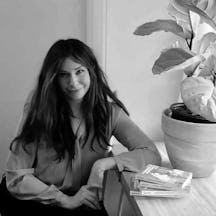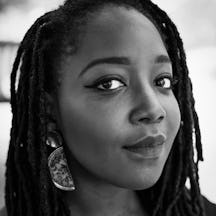Living without health insurance in the United States, poet Anne Boyer learned to ignore the unmistakable signs of serious illness because she couldn’t afford time not working. Later in life, though, cancer couldn’t be denied, and forced her to accept her frailty – at least for a while.
We who can’t believe
Words by Anne Boyerartwork by Naki Narhaverage reading time 6 minutes
- Article
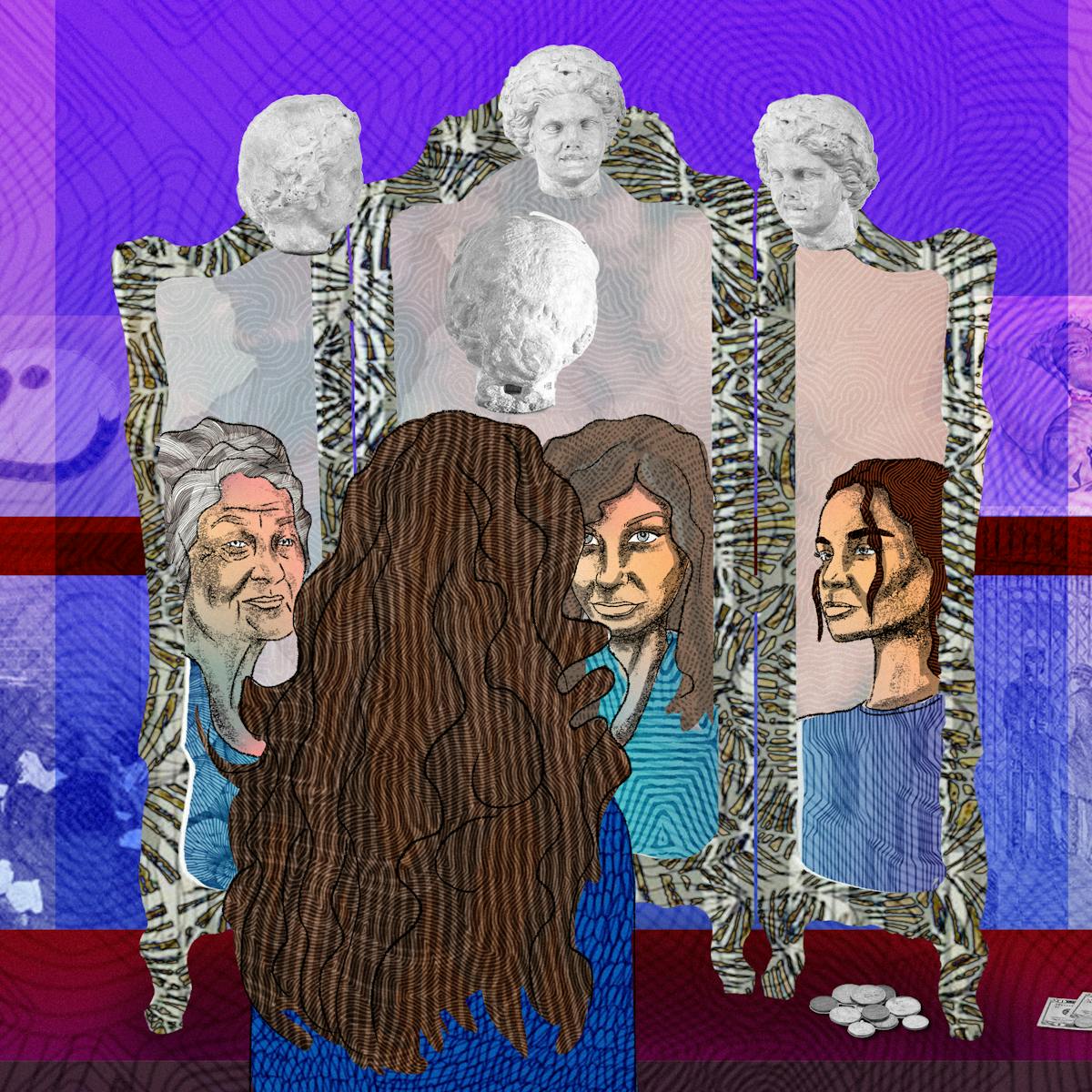
As long as I was aware, I refused to be aware that something was wrong with my body. Even as I haemorrhaged, I wouldn’t trust my own blood. Kidney stones were not. I mistook actual pregnancy for the hysterical kind. Perhaps this is why I have a colourful history of losing consciousness in public places. Acceptable evidence that I was ill and required medical attention had to be extreme and undeniable: a near-lifeless body, passed out and bleeding its acceptable proof on the floor.
Perhaps this was a way to differentiate myself from my mother. A survivor of severe childhood disease, she mistook every anxiety attack for organ failure. I, as her opposite, was never willing to admit I was sick, but always ready to accept that I was out of my mind. This denial was then reinforced by the rigours of the poverty in which my daughter and I once lived. Everyone knows that in the United States there is no budget for an uninsured mother’s illness after the rent and food.
As there have always been more poor people than any other kind, refusing to believe that you are ill or injured must be among the most common delusions on the earth. I am just one of a legion of wilfully bad listeners to the body, we who are the fantasists of necessary invincibility, the rampant self-deceivers who know that others depend on them and so they must go to work.
We the broken-toed, abscess-toothed – the infected, failing and malignant – will not admit that sometimes we too need help. Every time we see the word sick, we pretend we cannot read. I know people who sliced off the tips of their fingers or broke their wrists and kept working.
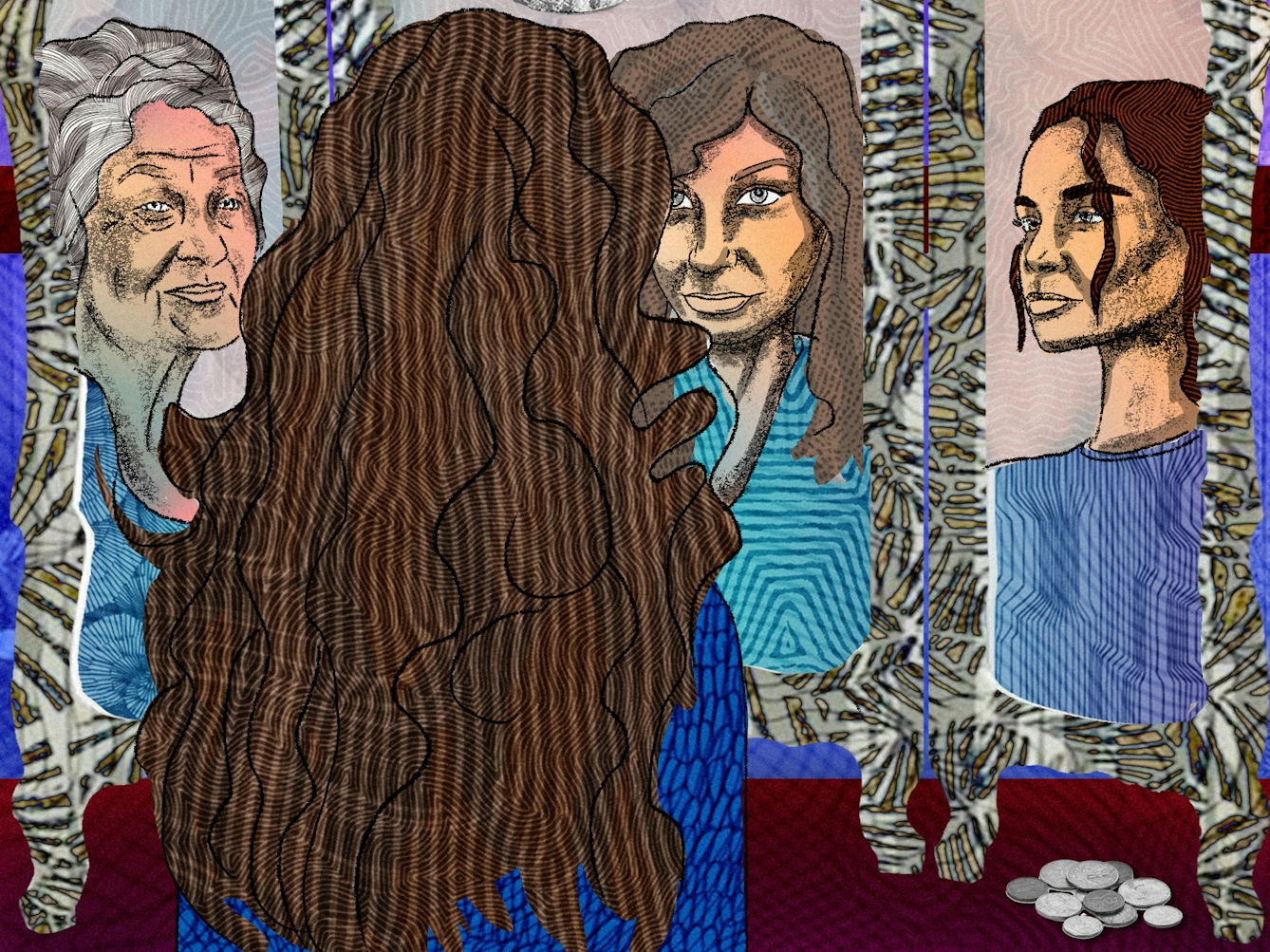
“My mother… a survivor of severe childhood disease, mistook every anxiety attack for organ failure. I, as her opposite, was never willing to admit I was sick.”
I know people who worked their whole lives, then were sick and dying for only a week or a day. They’d been sick all along, but they were the last ones to know about it, even on their deathbeds insisting that they should keep going. What they did was something like the opposite of malingering. To admit weakness felt like a luxury belonging to someone else.
Death comes visiting
In the hospital during a severe haemorrhage, I had a vision of Death in a cowboy hat sitting at the end of my bed. I knew then I didn’t want to die like that, 37 and prideful, stubborn and poor, staring at the Grim Reaper in his western-wear. How often I’ve found that we must force ourselves against ourselves to live, to see clearly and thus to see life, when death has put on his costume and gathered in so close around us.
After a crisis I would be ashamed, of course, after I’d been fixed up by doctors, wishing I had sought healthcare at the moment I needed it, no matter what the cost. Yet despite the shame involved with these spectacular acts of denial – with what I call my reverse hypochondria – I would sometimes return to the habit of refusing to recognise illness even after I got health insurance and enough money.
It sometimes seemed like the most difficult thing to do in the world was piece together the cause and effect of heavy objects dropped on feet and the necessity for X-rays, or the relationship between fevers and antibiotics. This behaviour forced each illness into an ultimate episode of tawdry melodramatics, like how I seemed to require myself to break out in hives up to my earlobes to convince myself I was allergic, and so I did. I didn’t like it, but it was as if the habits of poverty had worn a deep groove.
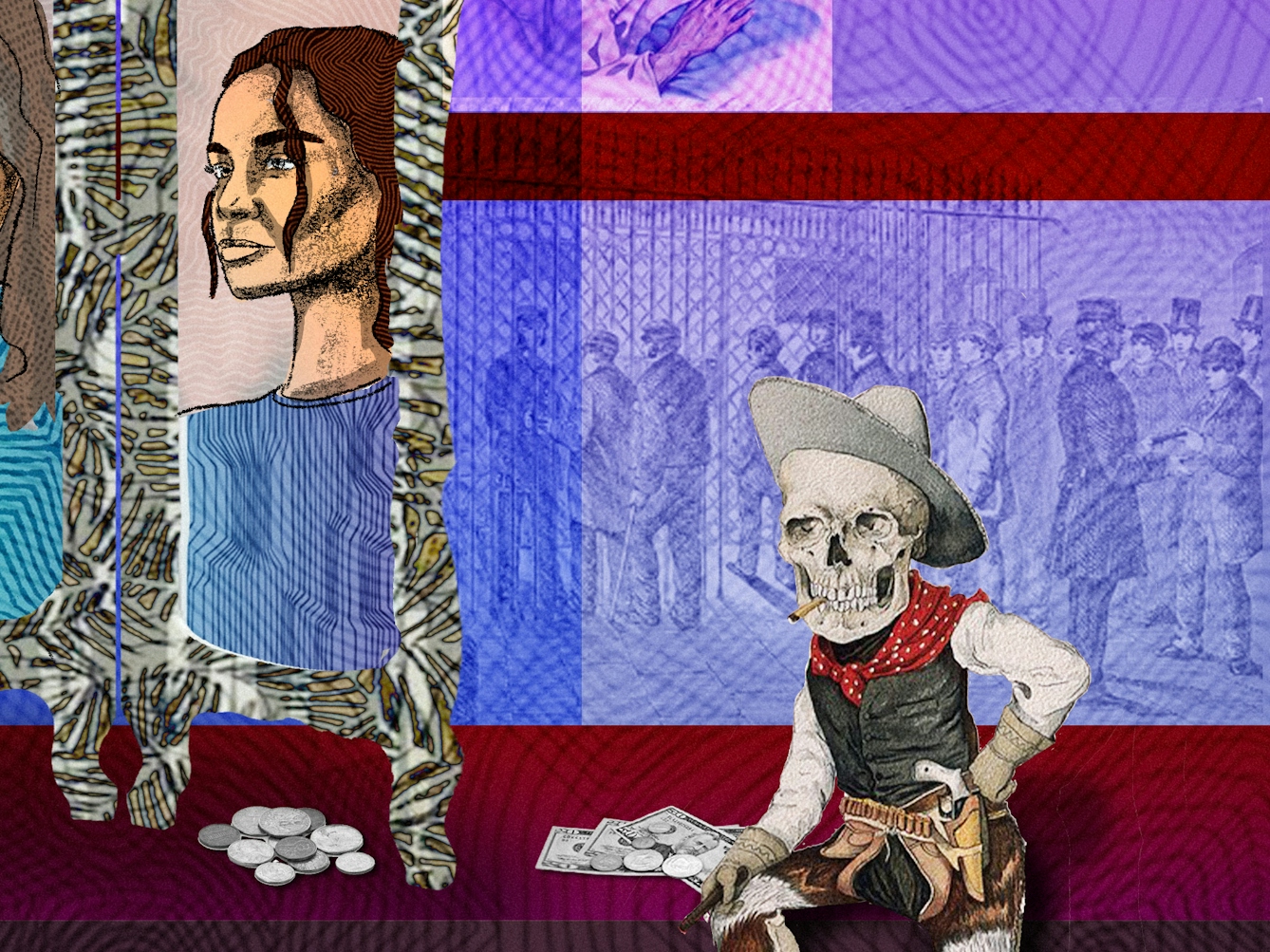
“In the hospital during a severe haemorrhage, I had a vision of Death in a cowboy hat sitting at the end of my bed. I knew then I didn’t want to die like that, 37 and prideful, stubborn and poor.”
We will not admit that sometimes we too need help. Every time we see the word sick, we pretend we cannot read.
My elderly cat is also a denialist, refusing to behave like an ancient and diseased creature. He plays with the younger cats kittenishly, even as he is in obvious, dramatic decline. Perhaps the capacity to obscure to oneself how bad one really feels lies deep in the mammalian psyche. We are creatures of relation – love is to mammals as the sun is to the trees. It takes less effort to extend oneself outward to others than to read, with accuracy, the stark and lonely inwardness of pain and disease.
I imagine my old cat would live for ever if he believed that he alone could win the family’s mice. I also think he would curl up and die right now if he understood himself to be weak and pitied – and what I am describing now is also me.
When cancer intervenes
That I eventually was required to be a cancer patient finally, almost, cured me. I fought every day against the beautiful ease with which I might be able to deny the obvious. I was grateful that the tumour hurt, in that the unique pain of it made the cancer easier to believe. To maintain the truth each hour involved reaching outward toward love’s shared reality.
I had cancer and other people cared too much to let me pretend otherwise. Some of them even needed me.
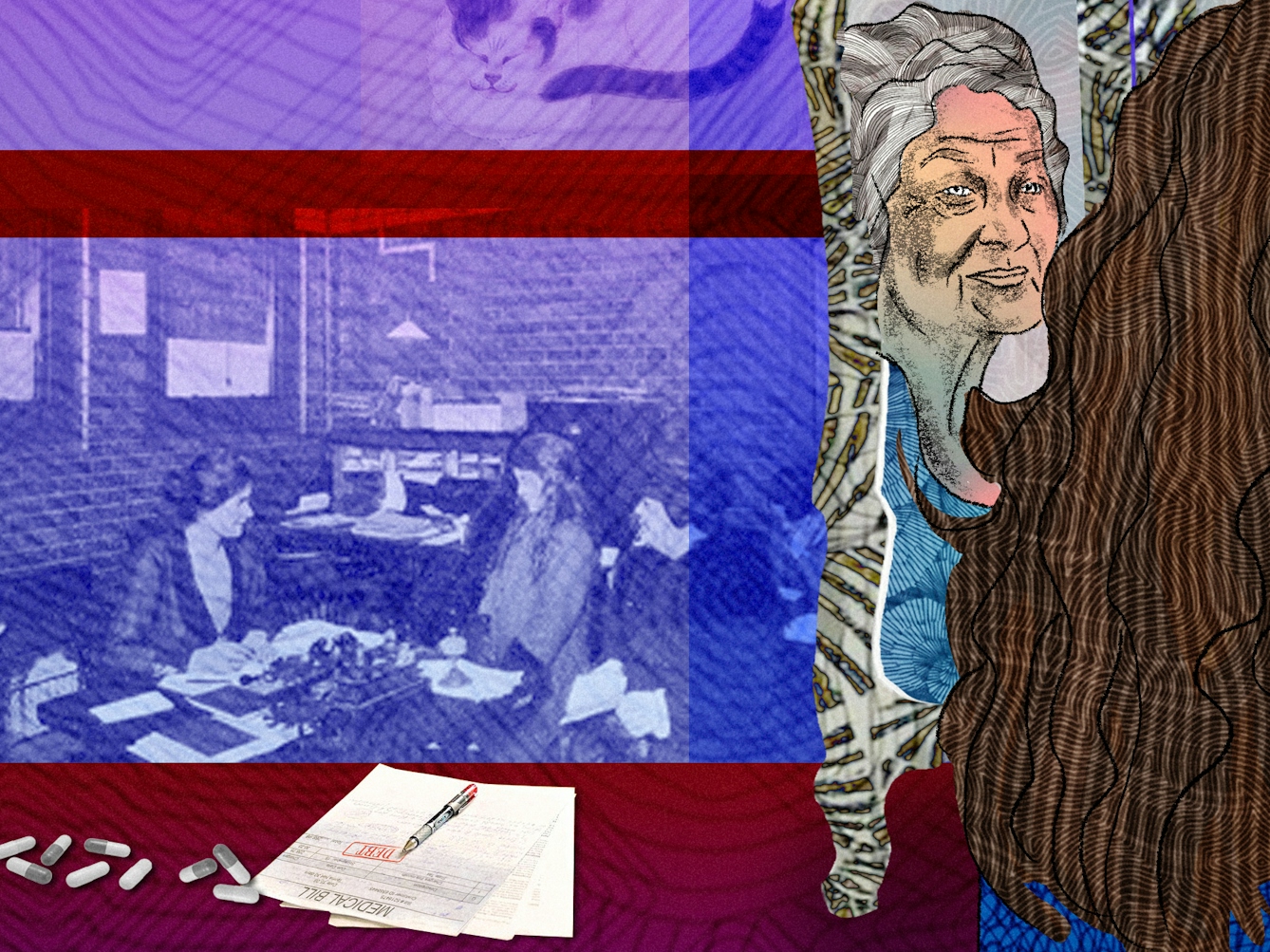
“I try, however, not to be so mysterious to myself as I once had been. Perhaps in a decade or two I will let myself once again dine at the table of delusion, mistaking every organ failure for a panic.”
Now I don’t know. I’ve grown so impatient with my health that it is to me a prodigal child whose name this family (the rest of me) will never again say aloud. Besides, it seems much more glamorous to say no to what I can’t do while never again explaining why.
I used to worry that people would think I was a jerk if they didn’t know why I couldn’t do this or that thing that should be so easy. Now I prefer – to having to say the word “surgery” or any other such banality – their negative estimation of my character. How much cooler than being sickly it would feel to be a villain. I don’t ever want to say the words “I’m sick” aloud again.
I try, however, not to be so mysterious to myself as I once had been. Perhaps in a decade or two I will let myself once again dine at the table of delusion, accepting that I am like my mother but in the opposite way, mistaking every organ failure for a panic. When I can once again savour every conciliatory fiction, it will be such a feast!
Yet for now, as I might need to live a while longer, I have made myself a bargain. I never have to speak of ‘health’ or ‘sickness’ to others as long as I always try to tell the truth about them to myself.
About the contributors
Anne Boyer
Anne Boyer is an American poet and essayist. She is the author of ‘The Romance of Happy Workers’ (2008), ‘The 2000s’ (2009), ‘My Common Heart’ (2011), ‘Garments Against Women’ (2015), ‘The Handbook of Disappointed Fate’ (2018) and ‘The Undying’ (2020), for which she won the Pulitzer Prize.
Naki Narh
Naki is an artist of Ghanaian descent from two homes, Accra and London. Her work draws inspiration from quintessentially Ghanaian tropes and concerns: explorations of self and identity, social and personal conscience. She loves to work with abstract lines, portraits, colour and patterns. She works in ink and acrylic on paper, digital painting and canvas. Explosions of colour and patterns mark her rapidly evolving signature style. Her love for art and architecture are more than expressions of self: they represent an amalgam of all that has moulded her themes and style of painting. They are an assimilation of the kaleidoscope of cultural and structural vibrancy and vitality of a life spent immersed in distinctly different cultures.
